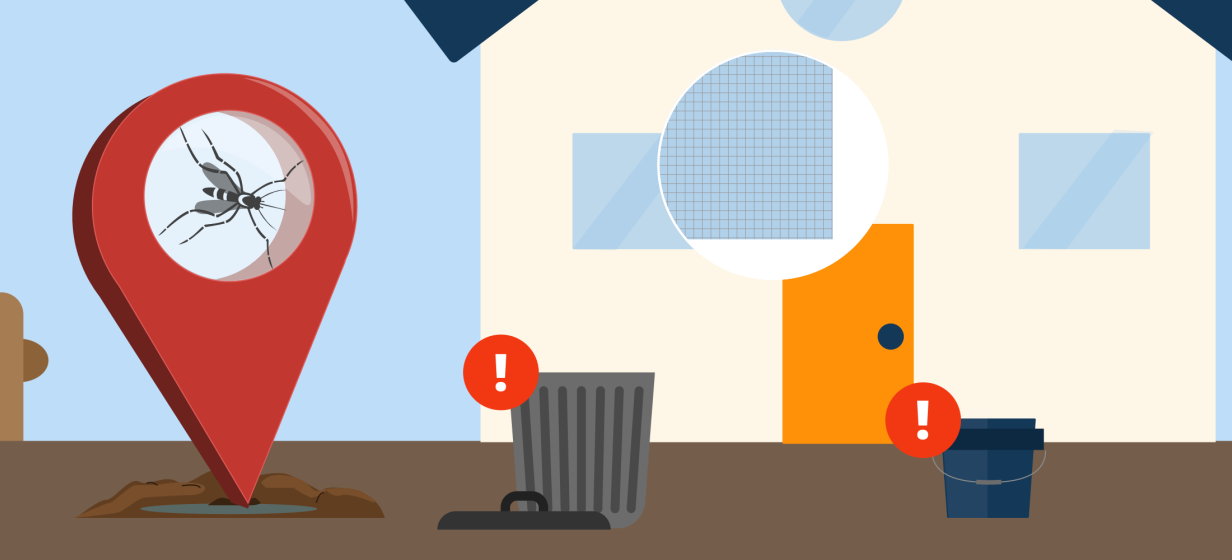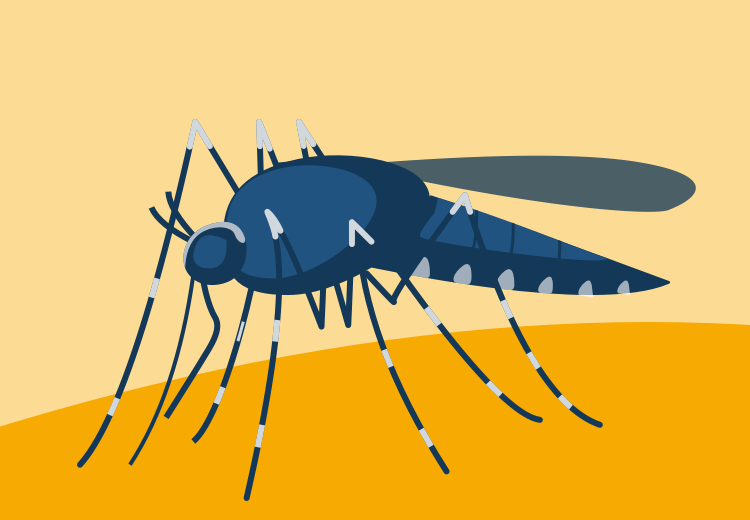You can help lower your risk of getting infected with dengue by avoiding mosquito bites, especially between mid-morning and dusk when the mosquitoes that carry dengue are most active.1

Use an insect repellent regularly
Using registered repellents (such as DEET) on your skin or clothing can make you less attractive to mosquitoes.2

Wear loose and protective clothing
Mosquitoes can bite through tight-fitting clothes. Wear loose long trousers, long-sleeved shirts, socks, and shoes.

Treat your clothing and belongings
You can spray your clothes and belongings with an insecticide to help deter mosquitoes.

Try to keep your environment mosquito-free
Keep mosquitoes out with screens on windows and doors. If you don’t have screens, use a mosquito net. Air conditioning will also help. Stop mosquitoes laying their eggs nearby by regularly emptying and cleaning anything that holds water, like toys, flower pots, trash cans, and tires.
If you are concerned you have dengue, call your doctor. If you are diagnosed with dengue follow your doctor's instructions and try to avoid getting further mosquito bites in the first week of the illness. You might transmit dengue to other mosquitoes that can pass it on to other people.































